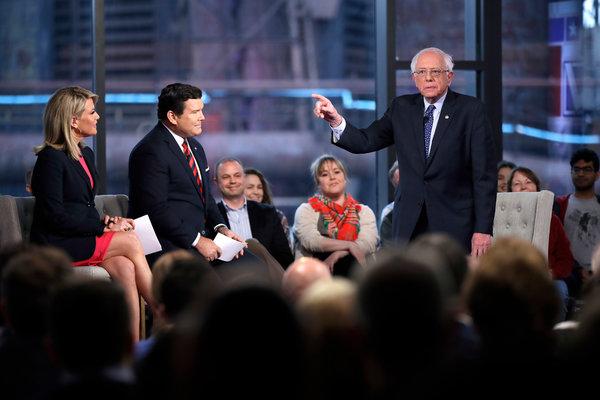The State of the Democratic Primary

Apr 16, 2019
The Democratic primary process is in full swing this April, boasting twenty declared candidates and two more politicians likely to enter the race. With so many campaigns, it can be difficult to keep track of who’s who and each candidate’s similarities with the rest of the field and where they differ.
Senator Bernie Sanders (D-VT) was one of the first to announce his candidacy. He’s a self-described democratic socialist, with policies like Medicare for All, free public college tuition, and raising taxes on the wealthy and corporations as centerpieces of his presidential run. He consistently polls in first or second place in key primary states, and takes pride in taking no corporate PAC money to fund his campaign.
Senator Elizabeth Warren (D-MA) has done extensive preparation for her presidential bid, but she’s polling low in key early primary states like New Hampshire and Iowa. She’s basing her campaign around curtailing the influence of the wealthy in politics and rebuilding the middle class from decades of slow decline. Sen. Warren, like Sen. Sanders, takes no corporate money to fund her campaign. Warren was criticized for commissioning a DNA test allegedly proving she had Native American heritage, with many seeing it as insensitive.
Mayor Pete Buttigieg of South Bend, IN has enjoyed a surge in support recently, taking him from underdog to feasible nominee. As the youngest candidate in the race, he’s looking to bring climate change and economic inequality to the forefront of the Democratic discussion. However, many oppose policies he promoted as mayor, such as tearing down homes in poor neighborhoods of color over a lack of rent payment.
Senator Kamala Harris (D-CA) is a first-term Senator who’s long championed civil rights reform and tax cuts for middle class families. She’s typically polling around third or fourth in early voting states, and has recently unveiled a plan to improve salaries and school conditions for teachers. Her record as a district attorney has drawn criticism, with some alleging she contributed to mass incarceration in California. She’s among just a handful of women of color ever to run for president, drawing enthusiasm from many.
Senator Cory Booker (D-NJ) is a long-time advocate for criminal justice reform, and he’s looking to make unity and recovering from political polarization central to his campaign. He’s not enjoying plenty of support yet in early voting states, and has been denounced for accepting large amounts of campaign money from large pharmaceutical corporations such as Pfizer.
Former Representative Beto O’Rourke (D-TX) is looking to bring what he calls a “positive campaign” to the race, delivering a call for unity comparable to that of Sen. Booker. He’s been acclaimed by Democrats after narrowly losing his Senate bid to Sen. Ted Cruz in 2018. He’s made marijuana legalization, access to rural health care, and immigration reform the core of his campaign messaging.



